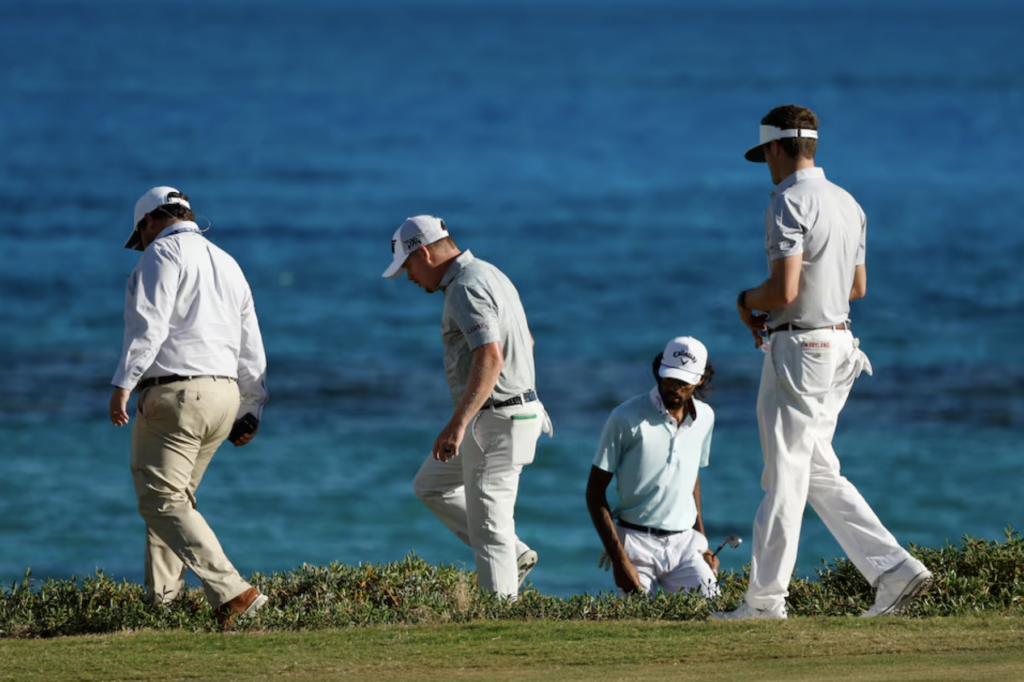Rules Review: I know I get three minutes to find my ball. But what if my search is interrupted? – Australian Golf Digest

- by Admin
- November 13, 2024

[PHOTO: Sarah Stier]
In 2019, the Rules of Golf reduced the amount of time you can search for a potentially lost ball from five minutes to three. The rationale for the move was explained this way by the R&A and USGA:
“Limiting the search period to three minutes is more consistent with the underlying principle that golf is to be played in a prompt and continuous way, without long pauses in play. In most cases, if the ball is going to be found, it will be found within the first three minutes. Although this change might increase the number of lost balls, on average the overall impact should be to speed up play.”
Rule 18.2a covers the “how to” of this procedure. A player and/or his or her caddie have a reasonable amount of time to reach the potential search area and then the clock starts. If the ball is found after three minutes, it’s considered lost and the player must take the stroke-and-distance penalty. Hopefully, the golfer hit a provisional ball and doesn’t have to return to the tee or spot of his or her last stroke. You’ll get some crooked looks from the group behind you if you start walking back.
You might wonder what happens if your search is interrupted. Can the clock stop, so to speak, if you start searching and then stop before three minutes has elapsed if the lightning siren goes off and you decide to take cover? Or can it stop if you begin to search but then decide a minute into it to let the group behind you play through? What if you start a search but aren’t sure if you can dig through the sand in a bunker with your club, so you stop before three minutes is up and call in a rules official or the head pro to ask what is allowed?
In all three of those examples, Rule 18.2a(1)/1 says the clock does stop and you get to resume your search with whatever time is remaining from when you halted the search.
The rules offer another example, however, where you can’t get additional search time. Say that lightning siren went off, play was suspended, but you kept on looking until the three-minute period expired. It doesn’t matter that play was suspended. Because you kept looking, that ball is now considered lost. (And you’d better get indoors!)
Perhaps the most common example of legit clock stoppage comes when you find a ball after a quick search, get ready to play it, and then discover upon closer inspection that it’s not your ball. You stopped your search in less than three minutes, so you can resume your search for your actual ball with the time remaining. Better hurry up.
Another common issue is finding your ball in deep rough and losing it again after going back to your bag to grab a club. Despite losing it twice, you still have whatever time is left in the three-minute period to find it again. Next time you find it in this situation, throw your cap down to mark its location!
MORE GOLF DIGEST RULES REVIEWS
The Latest News
-
December 23, 2024‘Puts golf on the map here’: Ryan Fox praises Rory McIlroy visiting New Zealand’s Tara Iti, Te Arai – Australian Golf Digest
-
December 23, 2024Freedom Boat Club Announces its 10th Australian Location with its Newest Location Offering Direct Access to the Iconic Brisbane River – Marine Business News
-
December 23, 2024Highfield and Australian Sailing team up in RIB support – Marine Business News
-
December 23, 2024‘I felt horrible’: How Brett Lee went from an ill-fated threat to Test stardom in four balls
-
December 23, 2024QuickWin Casino: Your Fast-Track to Winning in Australia – Fantasy Football 247 – Premier League Tips





